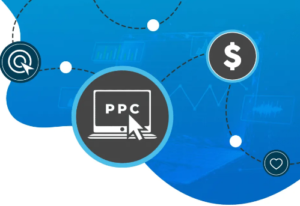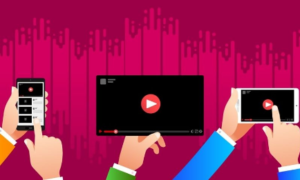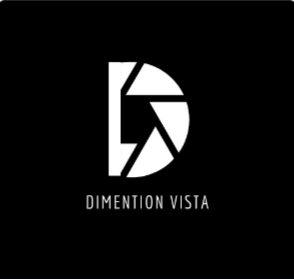In today’s rapidly evolving digital landscape, businesses are continually seeking effective strategies to enhance their online presence and drive targeted traffic. Pay-Per-Click (PPC) advertising has emerged as a pivotal component of digital marketing, offering businesses the opportunity to reach potential customers precisely when they’re searching for related products or services.
This article explores guide delves into the intricacies of PPC a comprehensive guide its fundamentals, benefits, and the latest trends shaping its future.
What is PPC Advertising?

Pay-Per-Click (PPC) advertising is a digital marketing model where advertisers pay a fee each time their ad is clicked. Essentially, it’s a method of buying visits to your site rather than attempting to earn them organically. PPC ads appear on search engines, social media platforms, and various websites, targeting users based on keywords, demographics, interests, and more.
Key Components of PPC
- Keywords: The foundation of PPC campaigns. Advertisers bid on specific words or phrases relevant to their offerings.
- Ad Copy: The message conveyed to potential customers, crafted to attract clicks.
- Landing Pages: The destination page users arrive at after clicking an ad, optimized to encourage conversions.
- Bid Amount: The maximum amount an advertiser is willing to pay for a click on their ad.
- Quality Score: A metric used by platforms like Google Ads to determine the relevance and quality of your keywords and ads.
Benefits of PPC Advertising
- Immediate Results: Unlike organic strategies, PPC can drive traffic to your site almost instantly upon campaign activation.
- Targeted Reach: Ads can be tailored to specific demographics, locations, and times, ensuring they reach the most relevant audience.
- Measurable ROI: Detailed analytics allow advertisers to track performance and adjust strategies in real-time.
- Cost Control: Advertisers set budgets and bids, maintaining control over their expenditure.
Latest Trends in PPC Advertising
As of 2025, several trends are redefining the PPC landscape:
1. AI-Driven Automation

Artificial Intelligence (AI) is revolutionizing PPC by automating tasks such as bid adjustments, ad placements, and performance analysis. AI algorithms analyze vast datasets to optimize campaigns, ensuring better ROI and efficiency.
2. Voice Search Integration

With the proliferation of voice-activated devices, optimizing PPC campaigns for voice search has become imperative. This involves targeting long-tail keywords and natural language queries that users are likely to speak.
3. Video Ads Dominance

Video content continues to captivate audiences. Platforms like YouTube and social media channels offer PPC video ad opportunities, enabling brands to engage users through compelling visual storytelling.
4. First-Party Data Utilization

In response to increasing privacy concerns and the phasing out of third-party cookies, advertisers are leveraging first-party data information collected directly from their audiences to create personalized ad experiences.
5. Hyper-Personalization

Consumers expect ads tailored to their preferences and behaviors. Utilizing data analytics, advertisers can create hyper-personalized campaigns that resonate on an individual level, enhancing engagement and conversion rates.
Common Challenges in PPC and How to Overcome Them
While PPC offers numerous advantages, advertisers often face challenges:
1. Increasing Competition and Costs
As more businesses invest in PPC, competition for keywords intensifies, leading to higher costs per click.
- Solution: Focus on long-tail keywords with lower competition, continually optimize ad copy and landing pages, and leverage AI tools for efficient bid management.
2. Ad Fatigue
Audiences may become desensitized to repetitive ads, leading to decreased engagement.
- Solution: Regularly refresh ad creatives, experiment with different formats, and utilize A/B testing to identify what resonates best with your audience.
3. Navigating Platform Changes
PPC platforms frequently update their algorithms and features, posing a challenge for advertisers to stay current.
- Solution: Engage in continuous learning through webinars, industry blogs, and forums. Collaborate with experienced PPC professionals or agencies to stay ahead of changes.
Actionable Tips for Successful PPC Campaigns
Conduct Thorough Keyword Research: Utilize tools like Google Keyword Planner to identify relevant keywords with substantial search volume and manageable competition.
- Craft Compelling Ad Copy: Highlight unique selling propositions and include clear calls-to-action to entice clicks.
- Optimize Landing Pages: Ensure consistency between ad copy and landing page content, and streamline the user experience to facilitate conversions.
- Implement Conversion Tracking: Use tools like Google Analytics to monitor actions taken by users after clicking your ads, enabling data-driven decisions.
- Regularly Review and Adjust Campaigns: Analyze performance metrics to identify underperforming ads or keywords and make necessary adjustments.
Conclusion
PPC advertising remains a dynamic and effective strategy for businesses aiming to enhance their online visibility and drive targeted traffic. By understanding its core components, staying abreast of emerging trends, and implementing best practices, advertisers can navigate the complexities of PPC to achieve sustained success. Embrace the evolving landscape, leverage technological advancements, and continually refine your approach to maximize the benefits of PPC in your digital marketing arsenal.

